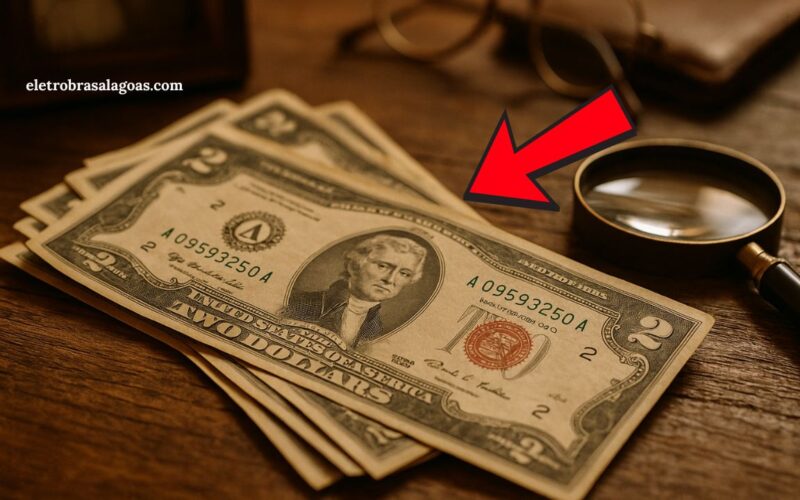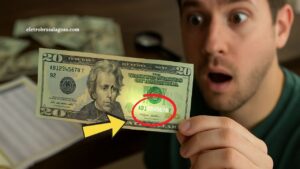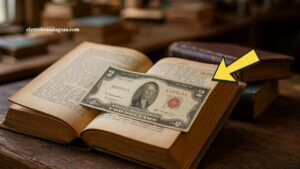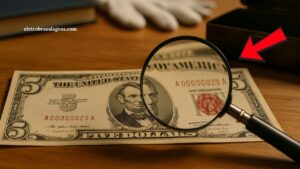If you’ve ever come across a stash of $2 bills tucked away in an old wallet or family keepsake, you might be holding more than just sentimental value.
In June 2025, collectors are paying top dollar for rare and unique $2 notes — and some could be worth thousands of dollars depending on the year, condition, and serial number.
Why $2 Bills Are So Valuable in 2025
Though still in circulation, $2 bills are rarely used in everyday transactions. Their scarcity in the market has made them a hot topic among collectors.
When combined with historic printings, limited series, or unique serial numbers, their value can skyrocket. Older bills, particularly those in uncirculated condition, are attracting the most attention this summer.
Valuable $2 Bills in June 2025
| Year & Type | Key Feature | Potential Value (USD) |
|---|---|---|
| 1862–1890 Legal Tender Notes | First issue, red seal | $1,000–$4,500+ |
| 1890 Treasury Notes | Ornate design, high rarity | Up to $4,000+ |
| 1928 Red Seal Notes | Small size, early print | $200–$1,000+ |
| 1928 Star Notes | Star replacement note | $500–$3,000+ |
| 1976 Federal Reserve Notes | Star or fancy serial numbers | $100–$900+ |
| 1976 Ladder Serial (e.g. 12345678) | Sequential digits | $500–$5,000+ |
Key Features That Increase $2 Bill Value
1. Age and Series
Older $2 bills, especially from pre-1934 series, tend to be much more valuable. Look for notes with red or brown seals — they are often printed on older, rare notes.
2. Star Notes
A star symbol next to the serial number indicates that the bill was a replacement for one damaged in production. These are often printed in limited quantities, making them highly collectible.
3. Fancy Serial Numbers
Serials such as palindromes (e.g. 20000002), repeaters, or ladders (e.g. 12345678) fetch a premium due to their visual uniqueness.
4. Condition
The value dramatically increases if the bill is in uncirculated or mint condition. Creases, stains, or tears can reduce its worth significantly.
Common Mistakes to Avoid
- Spending a valuable note thinking it’s only worth face value.
- Folding or damaging potentially rare bills.
- Selling without checking current collector demand or value trends.
Estimated Value by Condition
| Bill Type | Circulated | Uncirculated |
|---|---|---|
| 1862–1890 Legal Tender | $800–$1,500 | $3,000–$4,500+ |
| 1928 Red Seal | $30–$200 | $500–$1,000+ |
| 1976 Fancy Serial | $50–$400 | $500–$5,000+ |
| 1928 Star Note | $300–$800 | $1,000–$3,000+ |
How to Handle and Sell Your Rare $2 Bills
- Inspect serial numbers for patterns or stars.
- Handle with gloves and store in protective sleeves.
- Get a professional appraisal if you believe it’s rare.
- Use certified dealers or online marketplaces to sell — never rush the process.
What might seem like an ordinary $2 bill from Grandpa’s collection could actually be a hidden gem worth thousands. In June 2025, the collector’s market is active and eager, especially for bills with star notes, rare serials, and older dates.
Don’t underestimate what’s tucked away in drawers or photo albums — it might just be your ticket to a small fortune.
FAQs
Are modern $2 bills from 1976 or later worth anything?
Yes, especially if they have unique serial numbers, star notes, or are in uncirculated condition.
How can I tell if my $2 bill is valuable?
Check the year, seal color, serial number, and overall condition. Compare it with known valuable issues.
Where can I sell a rare $2 bill?
Online auction sites, certified currency dealers, and coin shows are popular places to sell collectible currency.




